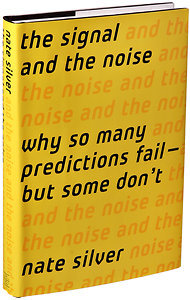S
smcder
Guest
From the opening of Lanier's Semifesto ... a very good point about one thing leading to another:
"During the last twenty years a stream of books has gradually informed the larger public about the belief structure of the inner circle of Digerati, starting softly, for instance with Godel, Escher, Bach, and growing more harsh with recent entries such as The Age of Spiritual Machines by Ray Kurtzweil.
Recently, public attention has finally been drawn to #6, the astonishing belief in an eschatological cataclysm in our lifetimes, brought about when computers become the ultra-intelligent masters of physical matter and life. So far as I can tell, a large number of my friends and colleagues believe in some version of this immanent doom.
I am quite curious who, among the eminent thinkers who largely accept some version of the first five points, are also comfortable with the sixth idea, the eschatology. In general, I find that technologists, rather than natural scientists, have tended to be vocal about the possibility of a near-term criticality.
**I have no idea, however, what figures like Richard Dawkins or Daniel Dennett make of it. Somehow I can't imagine these elegant theorists speculating about whether nanorobots might take over the planet in twenty years. It seems beneath their dignity.
And yet, the eschatologies of Kurtzweil, Moravec, and Drexler follow
directly and, it would seem, inevitably,
from an understanding of the world that has been most sharply articulated by none other than Dawkins and Dennett.
Do Dawkins, Dennett, and others in their camp see some flaw in logic that insulates their thinking from the eschatological implications? The primary candidate for such a flaw as I see it is that cyber-armageddonists have confused ideal computers with real computers, which behave differently. My position on this point can be evaluated separately from my admittedly provocative positions on the first five points, and I hope it will be."
Sent from my iPhone using Tapatalk
@ufology
This was my original post with this emphasized:
"**I have no idea, however, what figures like Richard Dawkins or Daniel Dennett make of it. Somehow I can't imagine these elegant theorists speculating about whether nanorobots might take over the planet in twenty years. It seems beneath their dignity."
My comment was about one thing leading to another ...
Sent from my iPhone using Tapatalk








